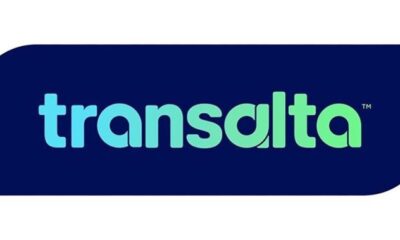Breaking News
Parents of kids with disabilities suing Alberta get injunction as education strike drags on

A group of parents who are suing the Alberta government over kids with disabilities not being able to go to school amid the ongoing CUPE strike have achieved a win in court.
An interlocutory injunction has been granted, to come into effect next Thursday, Feb. 27, to halt a ministerial order by Alberta’s education minister that gave the Edmonton Public School Board permission to commence at-home learning for select students when support staff went on strike.
“The responses I’m receiving so far from families and parents affected is they feel seen. They’re very happy about this. It’s vindicated them,” said Orlagh O’Kelly, the lawyer representing a group of Edmonton parents of children with disabilities who said their Charter rights to education are being violated because of a decision made by Education Minister Demetrios Nicolaides.
He issued a ministerial order on Jan. 10, granting the Edmonton Public School Board permission to change the in-person education requirement only for complex-needs students.
The following week, thousands of public school support workers — educational assistants, librarians and office staff — went on strike.
Because of that, about 3,700 Edmonton students with complex learning or health conditions who require educational assistance moved to either at-home learning or having a rotating in-school schedule for the past six weeks.
O’Kelly said the parents argued students with learning disabilities have been disproportionately affected.
“The court found that this was impactful to their dignity,” O’Kelly said.
“There’s psychosocial impacts that are basically obvious to them being excluded from their classmates. We have to take the wins where we get them in this line of work and for this vulnerable group of litigants as well.”

An interlocutory injunction is a temporary court order that prevents or requires an action until a case is decided. It is made at an interim stage during a trial, and is usually issued to maintain the status quo until judgment can be made.
What it means, in layman’s terms, is while the legal process of the Charter rights lawsuit is still being worked out, Alberta Education must rework the ministerial order to make it more equitable for all students, not just to minimize the number affected.
“They’ve got a chance now to try and do this right, to try and address the situation in an equitable manner. And they’ve got a week to do that,” O’Kelly said.
“Effective next Thursday, there’ll be no legal basis to keep the children home.”
The parents named in the lawsuit have children with Level 3 autism — the highest on the scale — also known as profound autism, Down syndrome, epilepsy, narcolepsy, dyslexia and a generalized learning disorder.

Get breaking National news
For news impacting Canada and around the world, sign up for breaking news alerts delivered directly to you when they happen.
Those parents all stated their children’s wellbeing is suffering from the disrupted routine and one even said their daughter’s development was regressing from not being in school.
They noted sudden changes to routines are stressful and upsetting, having a significant impact on their children’s learning, behaviours and emotions.
The parents said just because their sons and daughters are special needs, it doesn’t mean they deserve a lesser education experience.

In making her decision, Court of Queen’s Bench of Alberta Justice Anna Loparco found there were serious issues to be tried and the parents were not making unreasonable or unrealistic demands.
“They do not seek to return all 3,700 students to full-time in-person learning without the necessary resources in place. Nor do they seek a mandatory injunction requiring Alberta to replace all striking EAs. They ask that the children with disabilities be assessed on an equal footing when considering how to redistribute resources,” Loparco wrote.
She added the Edmonton school district must develop a strike contingency plan that is more inclusive by, for example, having some non-disabled students be designated to stay home so that more complex-needs students could be integrated in-person.
Justice Loparco said while the ministerial order may have intended to have a few students affected by the strike as possible, it was still discriminatory.
“On its face, the ministerial order creates a distinction on an enumerated ground (intellectual and physical disability), namely, between complex-needs students and all other students. Moreover, it imposes a burden on that group of students by denying the benefit of in-person learning offered to non-disabled students.
“This has the effect of isolating children with disabilities and reinforces, perpetuates, or exacerbates their disadvantages.”
She went on to say, “Whether such a distinction is justifiable after a full and complete assessment of the record remains to be determined after a trial of the Charter issue. ”
There are approximately 2,000 Edmonton Public Schools educational assistants represented by CUPE 3550 that have been on strike since Jan. 13, and the judge acknowledged the job action does not appear to be close to ending.
“The (parents) recognize the impossibility of returning 3,700 complex-needs students immediately back to the classroom on a full-time basis during the strike, but state that the remedy sought would require Alberta to address the labour shortage in a more equitable manner by ensuring resources are redeployed fairly to all students. ”
Most EAs make between $31,000 and $43,000 a year — barely above minimum wage. That income has been the big sticking point at the bargaining table.

The parents’ Charter violation lawsuit claimed as the almost sole provider of funding to Edmonton Public (95 per cent), the province of Alberta has the power to end the strike if it lifts a wage cap imposed on EPSB in respect of the EAs.
The parents say that gives the school board little wiggle room at the collective bargaining table.
The province tried to argue in court the lawsuit should be between the parents and the Board of Trustees of Edmonton School Division, but the
-

 Destination8 months ago
Destination8 months agoSingapore Airlines CEO set to join board of Air India, BA News, BA
-

 Breaking News10 months ago
Breaking News10 months agoCroatia to reintroduce compulsory military draft as regional tensions soar
-

 Gadgets3 months ago
Gadgets3 months agoSupernatural Season 16 Revival News, Cast, Plot and Release Date
-

 Tech News12 months ago
Tech News12 months agoBangladeshi police agents accused of selling citizens’ personal information on Telegram
-

 Productivity11 months ago
Productivity11 months agoHow Your Contact Center Can Become A Customer Engagement Center
-

 Gadgets3 weeks ago
Gadgets3 weeks agoFallout Season 2 Potential Release Date, Cast, Plot and News
-

 Breaking News10 months ago
Breaking News10 months agoBangladesh crisis: Refaat Ahmed sworn in as Bangladesh’s new chief justice
-

 Toys12 months ago
Toys12 months ago15 of the Best Trike & Tricycles Mums Recommend

























